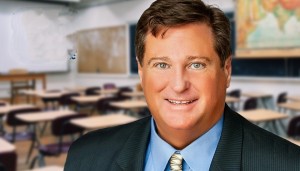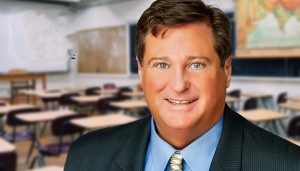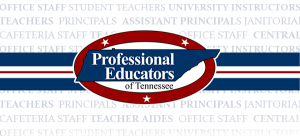In Rutherford County the conversation is naturally about Murfreesboro and Rutherford County. However, as Rutherford County continues to grow at record paces, it is important to wonder what the future looks like. It’s one of the fastest growing areas of Tennessee, with an estimated population growth of close to 100,000 in the last decade. What will schools look like? Can districts get so big it is unmaneageable?
People get tired of hearing about Shelby County’s education woes. To be fair, Nashville also gets to be in the discussion frequently. But, why can’t we fix Memphis-Shelby County Schools?
There are a variety of factors that impact a public school system. Past performance, funding, safety, class size, school and district leadership, quality of educators, instructional days, lack of vision, and family and community support are among the most obvious. Until district leadership and community leadership unite around an unwavering commitment to student achievement it will continue to be a challenge to change the direction of Memphis-Shelby County Schools.
How do you measure success in Memphis-Shelby County? You should measure it the same way you measure every other school or system in the state. We cannot expect any less from any student in any school in our state. If you expect less from students, you will get less from students.
How do you make progress in education? in the words of my friend Mike Petrilli, “You start with an expectation that every single child in every class will know and do more tomorrow than they did yesterday.” He was echoing the abandoned phrase of “soft bigotry of low expectations.”
As a candidate for President, George W. Bush said: “Is it unfair to hold disadvantaged children to rigorous standards? I say it is discrimination to require anything less—the soft bigotry of low expectations. Some say that schools can’t be expected to teach, because there are too many broken families, too many immigrants, too much diversity. I say that pigment and poverty need not determine performance. That myth is disproved by good schools every day. Excuse-making must end before learning can begin.” We have fallen back into the trap. In the process, we have given up on students, teachers, schools, and our ability to meet these academic challenges. I refuse to give up.
It starts with a reality check. We cannot be happy--nor should we be happy---with the academic performance in Memphis-Shelby County Schools. The 110,780 students there deserve our best. Just like the students in Murfreesboro and Rutherford County deserve our best.
Memphis-Shelby County Schools showed some of the country’s sharpest declines in math and reading scores on the National Assessment of Educational Progress. Then on the state exam TCAP, 9% of students in the state-run Achievement School District, 22% of MSCS students, and 36% of Tennessee students demonstrated proficiency in English. In Math, 6% of students in the state-run Achievement School District (ASD), 13% of MSCS students, and 30% of Tennessee students demonstrated proficiency.
Those numbers must improve, or it will not just be criticism of the Memphis-Shelby County Schools’ ability to help students progress, it will be more unwanted state legislation aimed at Shelby County by the Tennessee General Assembly. As much as we cannot be happy with the results in Shelby County, the state-run district is an even greater failure and disgrace.
The Tennessee Department of Education has identified Memphis-Shelby County Schools as a “Best for All District.” What does that even mean? State education leadership should explain the selection and criteria used for that selection. While they are at it, they should try and explain and defend the ASD test scores.
Two Shelby County leaders, Representative Tom Leatherwood, and Representative Antonio Parkinson have both called for an end to the Achievement School District. They should ask questions about ASD test results and get an explanation from state officials. When will we ever hold somebody at the state accountable for this failure and waste of tax dollars? It was tried, it failed, and we should have pulled the plug years ago.
Memphis matters. And it matters not only for the rest of the state, it matters for hundreds of thousands of children and families in Shelby County. Children from low-income families face more barriers, and we cannot extend the poverty cycle to another generation because of missed education opportunities. Currently, because of a lack of academic progress, children will have substantially reduced earnings in their future work careers, including material deprivation, diminished life prospects, and financial hardships.
Leadership in Memphis-Shelby County Schools must create an environment to prepare students for life beyond the classroom. The National Association for the Advancement of Colored People (NAACP) Legal Defense Fund describes a school-to-prison pipeline as “funneling of students out of school and into the streets.” They describe the cycle as “depriving children and youth of meaningful opportunities for education, future employment, and participation in our democracy.”
Educators are passionate about providing opportunities for all students. Teachers will work alongside parents and community leaders when they understand they are free from threats by a vindictive school system making them fear for their own livelihoods. When parents, educators, and faith and community leaders speak up it will make a difference for students.
Parents need to demand more from their children. Parents need to become engaged. Education is crucial for children to escape poverty and have a better life. Parents must require more from their elected school board. The school board needs to hold its Director of Schools accountable. Right now, they are searching for a new director. The school board needs to listen to teachers and parents.
We cannot afford any more overpaid, self-serving, advocates for the status quo, who only pander to local political whims. Shelby County needs an education leader that tackles the challenges of literacy, numeracy, and college and career readiness. They need a leader who can create a sustainable foundation by equipping the community, educators, and staff with the necessary information and tools to succeed while meeting academic requirements and fiduciary responsibilities.
Memphis should matter to all of us. Don’t give up on Shelby County. Roughly 11% of students in public schools in Tennessee attend school there. Memphis is a great city with unlimited possibilities. It will take state and local officials, families, educators, faith, and community groups working together to address this great challenge in education. No more excuses. When you get the right people involved in the education system it will be a better future for Memphis and Tennessee. If not now, when?
##
JC Bowman is the executive director of Professional Educators of Tennessee













